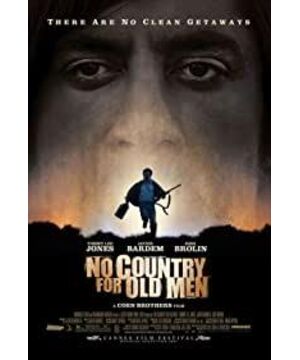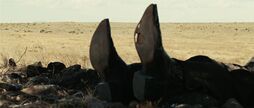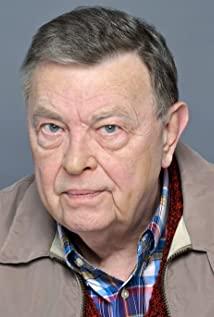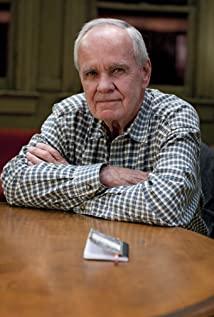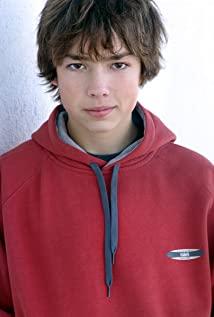——Han Xi
At the end of the film, the killer Anton was involved in a car accident. He took out the money to buy a shirt from a teenager. In the middle of the video, Llewellyn was seriously injured, and he also took out the money to buy a jacket from a young man. . These two episodes are almost identical, so the analogy is obvious. Llewellyn and Anton have similarities. They are both strong, and they are using money to cover up their fragility and the shadow of violence. cover up. But can violence be hidden with money?
At the beginning of the film, the moment Anton strangled the policeman with handcuffs, we saw the undisguised elements of violence in the footage of the Coen brothers, with red and purple faces, and the floor was scratched by leather shoes due to struggle. The traces of , and the bloodstain on Anton's wrist, all these details are quiet but cruel, but they hit the audience's nerves recklessly.
In movies, there are generally several ways to express violence, but the most creepy one is this documentary-like image style, which clearly shows all the details of violence in front of the audience, making the audience fundamentally No time to think, as if he had become Anton's accomplice. With this sense of guilt, the audience started the movie viewing journey!
Llewellyn was equally violent, but he appeared in front of the audience with an extremely calm attitude, the prey in the scope, the hound looking back after being injured, and the corpse lying all over the place. Set off Llewellyn's confidence and composure, even a kind of arrogance. And these characters are very similar to Anton, so the story is of course very interesting in the scenes that these two people chase.
However, the film introduced an image of an old governor with few scenes, a narration at the beginning of the film, and a self-narrative at the end of the film. The appearance of this character reduced or reconciled all the violent elements in the film. If Llewellyn and Anton are symbols of violence, then the old governor Bell is anti-violence, but there are two kinds of anti-violence, violence with violence, and staying away from violence. The old governor chose the latter.
If the film focused on Llewellyn versus Anton, we could see a classic man play, and if Bell fought violence, we could see a classic mainstream movie, but the Coen brothers clearly didn't plan to In doing so, Bell's character and role have become the essence of the film and become the real highlight of the film.
The film process is extremely thrilling, especially the image of Anton, a pervert or a killer who sticks to his own principles, will definitely be unforgettable. The unique method of opening the door is rendered to the extreme by the Coen brothers, so that the audience sees Llewellyn full of confidence. When he sat on the bed with guns and faced the wooden door, all the audience felt that his preparation was pale, and his nervousness reached a peak between the lights on and off in the quiet door, and he couldn't even breathe at all. Once again, the audience watched the battle immersively.
But for the violent rendering, this contest is already the climax of the film. Anton did not die, nor did Llewellyn, although both were seriously injured. This seems to make the audience feel unfinished, especially at the end of the film, the director even completely abandoned the violence, causing Llewellyn to die unintentionally by his mother-in-law. This is ridiculous, black, and it also makes the audience feel sorry. Llewellyn's final battle of life and death did not happen, but ended in haste.
When one of the three protagonists is missing, Bell naturally fills the gap. After Llewellyn's death, Anton searches Llewellyn's room, and Bell, a law enforcement officer, blocks Anton in the room. There was still no gunfight, and it was still calm. Bell knew the existence of Anton in the darkness of the house, but he gave up. This is a way to defuse violence, stay away from violence and have nothing to do with the police's duties.
Anton got the box of money and also killed Llewellyn's wife because he found one thing in common in Llewellyn, a penchant for violence. Due to the violence, when Llewellyn was injured, he actually gave up escaping. Although he loved his wife, he hoped to lure Anton through his wife and have a final battle with Anton. This is the dignity of violence. Although the purpose is different, the essence is the same. It is a pity that Llewellyn neglected to guard against the Mexicans, and the result was lost in the duel. And Anton knew Llewellyn the best. In his understanding, Llewellyn had given up his wife. Returning to the beginning of the article, the same actions of Anton and Llewellyn also prove this. This is the commonality of the two people, the dignity of violence that cannot be replaced by money!
Bell is old, he understands the concept of violence between Llewellyn and Anton, but he can't be like them, he didn't save Llewellyn, he flinched when he met Anton, which will inevitably be his self-blame ! But while blaming himself, he eliminated the violence in this way. Maybe this is the arrangement of fate, but it is also the choice of human nature!
Han Xi
2008-1-25 in Tongzhou
View more about No Country for Old Men reviews


